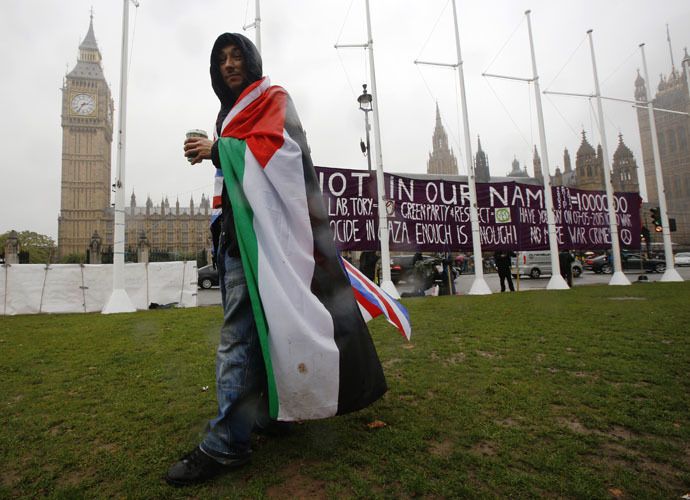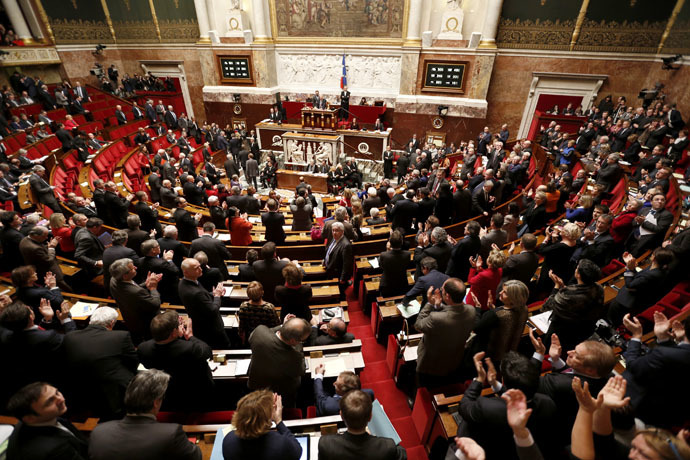Belgium may unilaterally recognize Palestine – report

Four political parties that form Belgium’s government have reportedly agreed to recognize the Palestinian state, despite diplomatic pressure from Israel and its allies. The recognition will happen “at a moment deemed appropriate.”
Belgium could become the second European Union member to officially recognize the Palestinian state, reported Le Soir, French language daily Belgian newspaper.
Sweden was the first country to recognize the occupied state of Palestine this year.
Belgium’s coalition government allegedly drafted a motion regarding recognition of the Palestinian state earlier this week. The document that will be submitted to nation’s parliament for implementation bears no set date of recognition, though.
In late November Prime Minister Charles Michel favored Palestine recognition. “But the question is when is the right moment,” he added.
There should be a common position elaborated within the EU regarding the Palestinian state recognition, Michel stressed. Yet there is at least one European state – Germany – that has spoken against recognition of Palestine.

“From our point of view, a unilateral recognition of the Palestinian state would not move us forward on the way to a two-state solution,” Germany’s Chancellor Angela Merkel said in November after meeting with Michel.
In October the British parliament voted in favor of a symbolic move to recognize Palestine as an official state, answering impassioned pleas by pro-Palestinian ministers and activists.
Irish lawmakers joined the initiative in November.
Spanish MPs have watered down outright calls for a Palestinian state after the ruling Socialist party passed a non-binding symbolic motion, though initial version urged the Madrid government to recognize Palestine.
The French parliament passed a symbolic motion on Palestine recognition on Tuesday, while the senate will vote on a similar non-binding motion on December 11. At the same time Foreign Minister Laurent Fabius stressed that the government would only recognize Palestinian statehood after Palestine and Israel come to a solution in peace talks.

Israeli authorities have been warning other nations to withstand from recognizing Palestinian statehood in any way.
“Recognition of a Palestinian state by France would be a grave mistake,” Israeli Prime Minister Benjamin Netanyahu told reporters in Jerusalem ahead of the French vote.
Simultaneously with the symbolic recognitions of the Palestinian state, Netanyahu's cabinet voted in favor of anchoring in law the status of Israel as “the national homeland of the Jewish people,” which critics fear would discriminate the Arab population.














